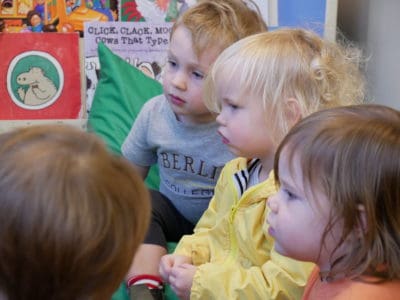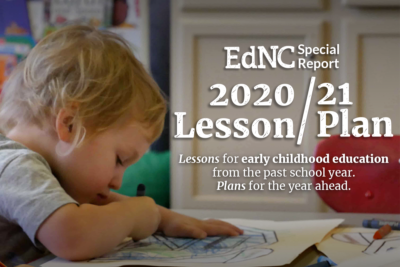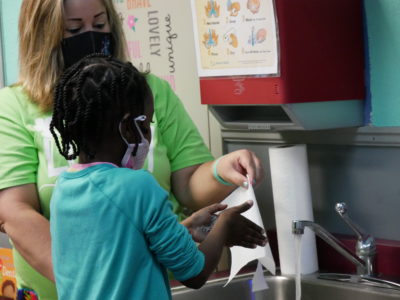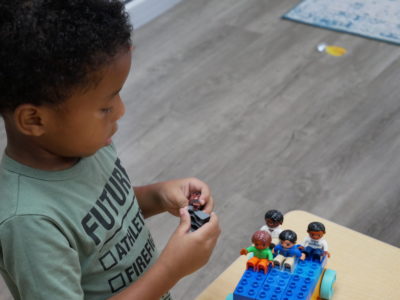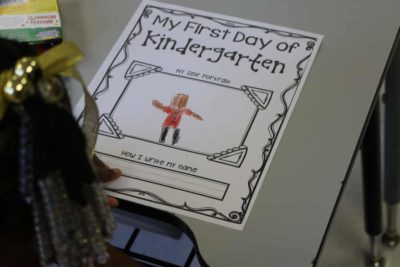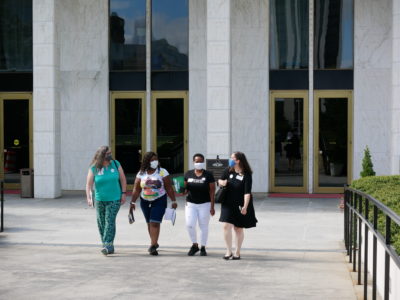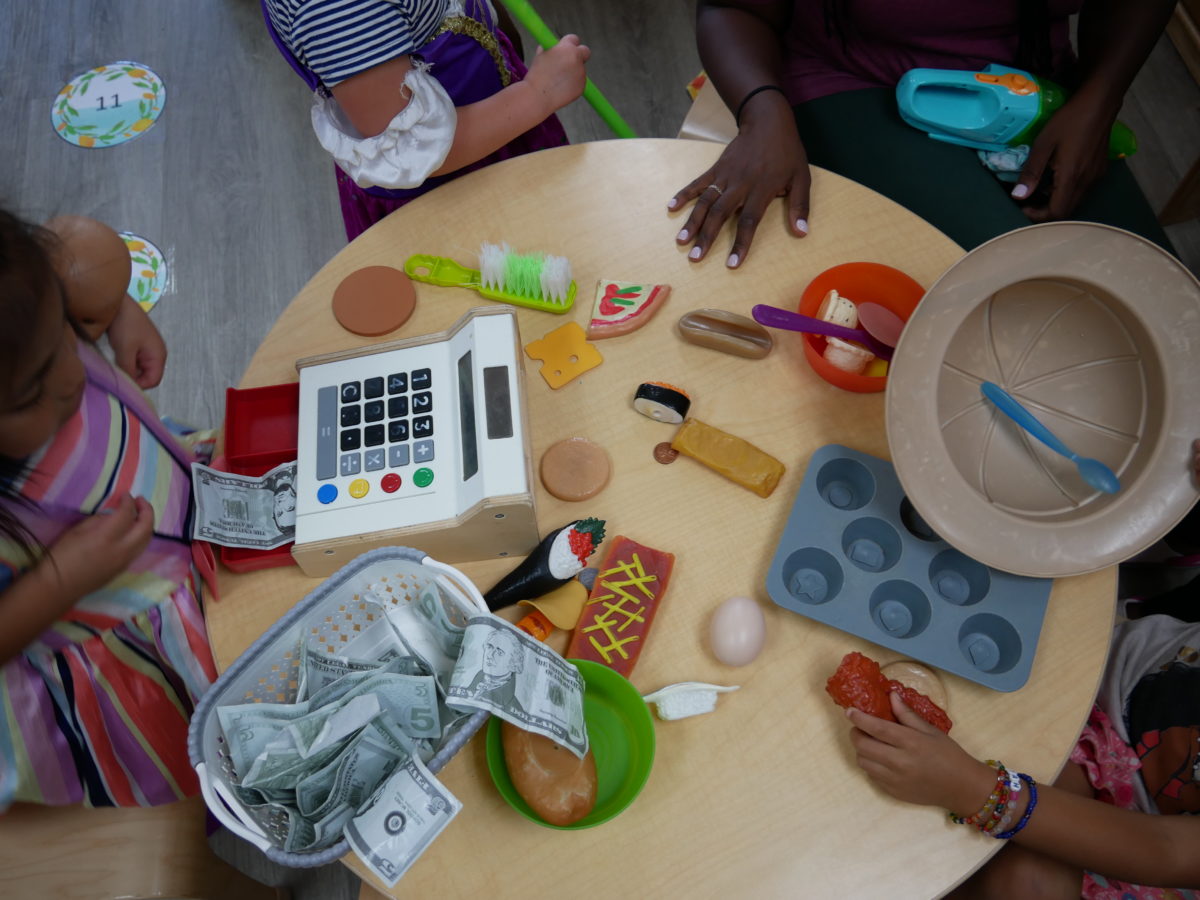

|
|
In April, one in five child care programs in North Carolina that responded to a survey released last week said they were at risk of closing permanently by October without more financial support.
The survey, conducted by Zogby Analytics, documents the financial challenges that child care providers experienced during the first year of the pandemic, with 31% of respondents reporting revenue losses greater than $45,000.
The research, commissioned by the NC Child Care Resource and Referral Council and funded by the Blue Cross and Blue Shield of North Carolina Foundation, documents the industry’s fragile state through the pandemic, caused primarily by drops in enrollment and higher costs to meet health and safety guidelines. It does not, however, capture the staffing crisis that has worsened since the survey was conducted, said Janet Singerman, president and CEO of Child Care Resources Inc., which serves Mecklenburg, Cabarrus, Union, Rowan, and Stanly counties.
“This is probably a little bit before we were feeling the full brunt of the staffing crisis,” Singerman said. “That has exacerbated the challenges of remaining open and economically viable during COVID. And as enrollment was recovering … the variant presumably will continue that challenge rather than lessen that challenge when everyone had hoped we were coming to a better place.”
Out of 4,810 licensed child care programs in the state with accurate email addresses, 1,825 programs responded, including center-based and family child care programs with various funding sources and operating structures. Respondents said they remained open primarily to serve children of essential workers, to maintain cash flow, and to maintain employment for staff.
Heightened health and safety protocols increased supply costs for 87% of the respondents and staffing costs for 37%, and they caused enrollment reduction for 23% of the programs. Nearly half of the programs closed at some point, and staff exposure to COVID-19 was the most common reason.
“We are definitely not out of this pandemic,” said Marcia Whitley, president and CEO of Verner Center for Early Learning, which has three centers in Buncombe County and a home-based Early Head Start program. “In fact, we really have not substantially changed in any way all of the different health and safety protocols that we put in place.”
One new protocol is having three adults per classroom, to limit the mixing of students and staff in the case of COVID-19 cases or exposures. That protocol has never been completely realized because of a small pool of qualified applicants, Whitley said. Funding from Early Head Start, NC Pre-K, the subsidy program, and a PPP loan has helped the program through the pandemic, she said.
“But it’s hard everywhere,” Whitley said. “We’re just trying to figure out: With families, how do we minimize tuition increases to the best of our ability while maximizing pay for our faculty to the best of our ability? It’s not enough.”
Fragile and fragmented
Even before the pandemic’s challenges, child care providers were experiencing those issues, said Sheila Hoyle, executive director of Southwestern Child Development.
“Child care is based in our state on a fragile financial system,” Hoyle said. “It is a fragmented system where many providers on a routine basis blend funding from several different sources to make their programs financially solvent — and that’s very difficult.”
“For the rebuilding of our economy and the strength of our economy for working parents, we don’t need that to be a fragmented and fragile system, we need to give it an infrastructural home and we need to support that financially and with programmatic resources.”
Surveyed programs said continued access to health and safety supplies and grants to cover fixed operating expenses were the types of support they needed most to stay open.
At different points of the pandemic, the state Division of Child Development and Early Education has provided operational grants, staff bonus payments, and hold-harmless policies for subsidy and NC Pre-K funding through federal relief money.
With children back, educators are hard to come by
Federal legislation called the American Rescue Plan is sending an additional $1.3 billion to the division to stabilize child care. Some of that funding ($805 million) is required to be used for more operational grants. The application for those grants has not yet opened. Another category of funds ($503 million) is meant to make care more affordable for families. Those funds have not yet been allocated by the state.
Statewide, child care enrollment is creeping back to normal, at 80% in July, said Susan Perry, chief deputy secretary at the Department of Health and Human Services.
But even with more children to serve, finding qualified staff has become especially difficult. Other low-wage employers have been raising wages to attract workers during a broader labor shortage, Hoyle said. Child care operators don’t have a means to do the same.
“The staffing crisis that we’re in has just been compounded by everything that’s at work in the labor market right now,” Hoyle said.
The same is true at Whitley’s centers. Enrollment has returned to 100% of pre-pandemic levels, yet finding teachers is her biggest challenge. Her centers are some of the only providers in her area that have not yet had to close classrooms because of a lack of qualified staff, she said.
It is common to lose teachers to better-paying jobs in the K-12 school system or elsewhere, she said. In her three years at the program, she said, she can remember just one single day when they were fully staffed.
“We can’t possibly compete financially,” she said. “Parents are paying too much, teachers are making too little, and the missing piece is the public investment in early education at the same level as there is that investment in the K-12 system.”



